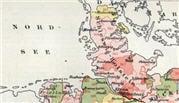Source Information
About Quebec Notarial Records (Drouin Collection), 1647-1942
In the 1940s the Institut Généalogique Drouin began microfilming records pertaining to French Canadians throughout French Canada and America. Consequently, this filmed set of records has become known as the Drouin Collection.
Areas Included:
The entire Drouin Collection contains vital, notarial, and other miscellaneous records from Quebec, as well as French Catholic parish records from Ontario, Acadia, and the U.S. This database only contains the Quebec notarial records.
Record Types:
Notaries were required to provide two guides for locating their acts – the repertoire and the index. The repertoire was a catalog organized by date, the number of the act, and a short description of it. The index was a table organized by year and the first letter of the surname. In the index one could find the act number, the parties involved, and the type of notarial act.*
There are many kinds of notarial records. Some notarial acts include:
- Marriage contracts
- Wills
- Deeds
- Inventories
- Agreements and settlements
- Transfers of property or money
- Donations
- Legal documents
This database does not contain the actual notarial acts. Instead, it contains the repertories and in some cases, the indexes, compiled by the various notaries as explained above. Therefore, the records in this database are organized according to notary name.
Language of the Records:
The majority of the records are written in French, but some are written in English, Latin, or Italian.
Why Research Notarial Records:
Besides providing genealogical information (name, occupations, relationships, places of birth), notarial records can provide many details about the lives of the ancestors and show them as an active part of the community. Notarial records can also provide a picture of the social and economic world in which these people lived and worked. In spite of the inherent difficulties, notarial records are one of the richest sources of information for French-Canadian researchers.*
Although the information available in the repertories and indexes won’t provide you the details of an actual notarial record, it will help you in locating the original act. Millions of notarial records are located in several regional archives in Canada. Some records may also be available on microfilm through the Family History Library.*
*Taken from Geyh, Patricia Keeney, "Civil Registration in the Province of Quebec" in French Canadian Sources: A Guide for Genealogists, (Orem, UT, USA: Ancestry, 2002).
 Need help with the French language? Find resources in our French Research Center.
Need help with the French language? Find resources in our French Research Center.